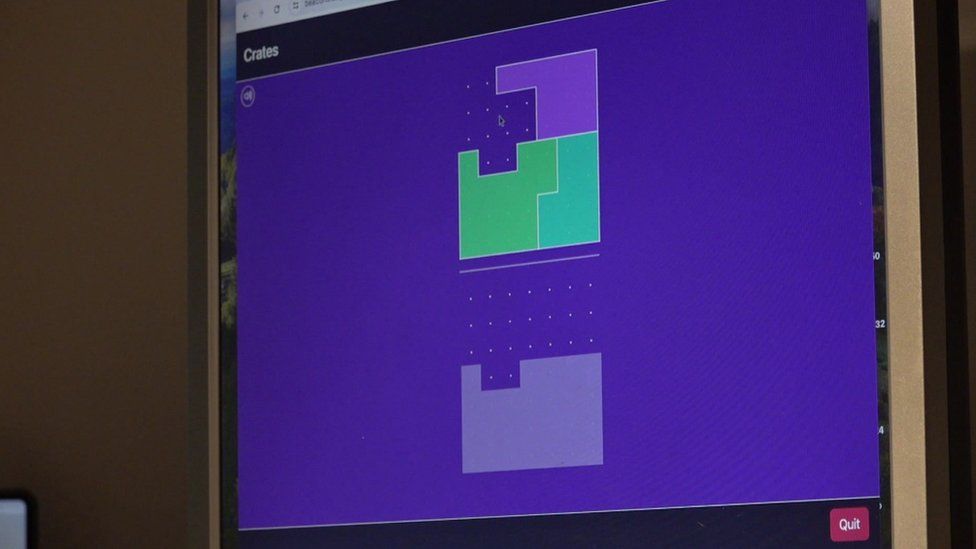Long Covid: Study using computer games to help memory
- Published

Scientists in Devon hope to reduce the impact of brain fog in people with long Covid using computer games.
The University of Exeter's Beacon Project used the brain's problem-solving abilities to help memory and cognition, staff said.
They added such games had been used in studies into the mental decline of older people and it was hoped similar work could help post-viral conditions.
The first findings could be available by the end of 2024, they said.
Long Covid - continuing symptoms lasting at least 12 weeks after a Covid-19 infection - is thought to have affected about two million people around the world, with 80% of those suffering memory problems, scientists said.
The study involved participants using brain-training games on an app or website for six months to get measures of accuracy and reaction time to help improve memory.
Participant Tamsin Perrett first contracted Covid just before the first lockdown in 2020 and has had it five times. But her first infection developed into long Covid.
She said she felt seriously ill, enduring rashes, chest pain, shortness of breath and brain fog, and was worried "that was gonna be my new normal, which was particularly scary with a young child".
Long Covid
Some common symptoms include:
- Extreme tiredness
- Feeling short of breath
- Problems with memory and concentration - or brain fog
Also include:
- Sleeping problems
- Loss of smell
- Anxiety
Source: NHS
She added brain fog "was at one point really scary and [I had] vertigo".
She recalled an incident, saying: "I remember thinking I was much better, then being in the car with my son in the back and suddenly realising... it was like the world had gone flat.
"I couldn't tell where the horizon line was and, obviously, just had to pull over and stop. But it was really disorientating."
Prof Anne Corbett specialises in dementia research but is now leading the study, which is looking for more volunteers with a history of long Covid and an internet connection.
She said: "Beacon [Project] is about whether we can use an accessible computer programme to help improve their brain, health and get them back to where they want to be.
"But we know this isn't going to be the silver bullet...
"This is a complicated problem that's going to need more than one solution in combination to make an effect."
Follow BBC Devon on X (formerly Twitter), Facebook and Instagram. Send your story ideas to spotlight@bbc.co.uk.
- Published8 April